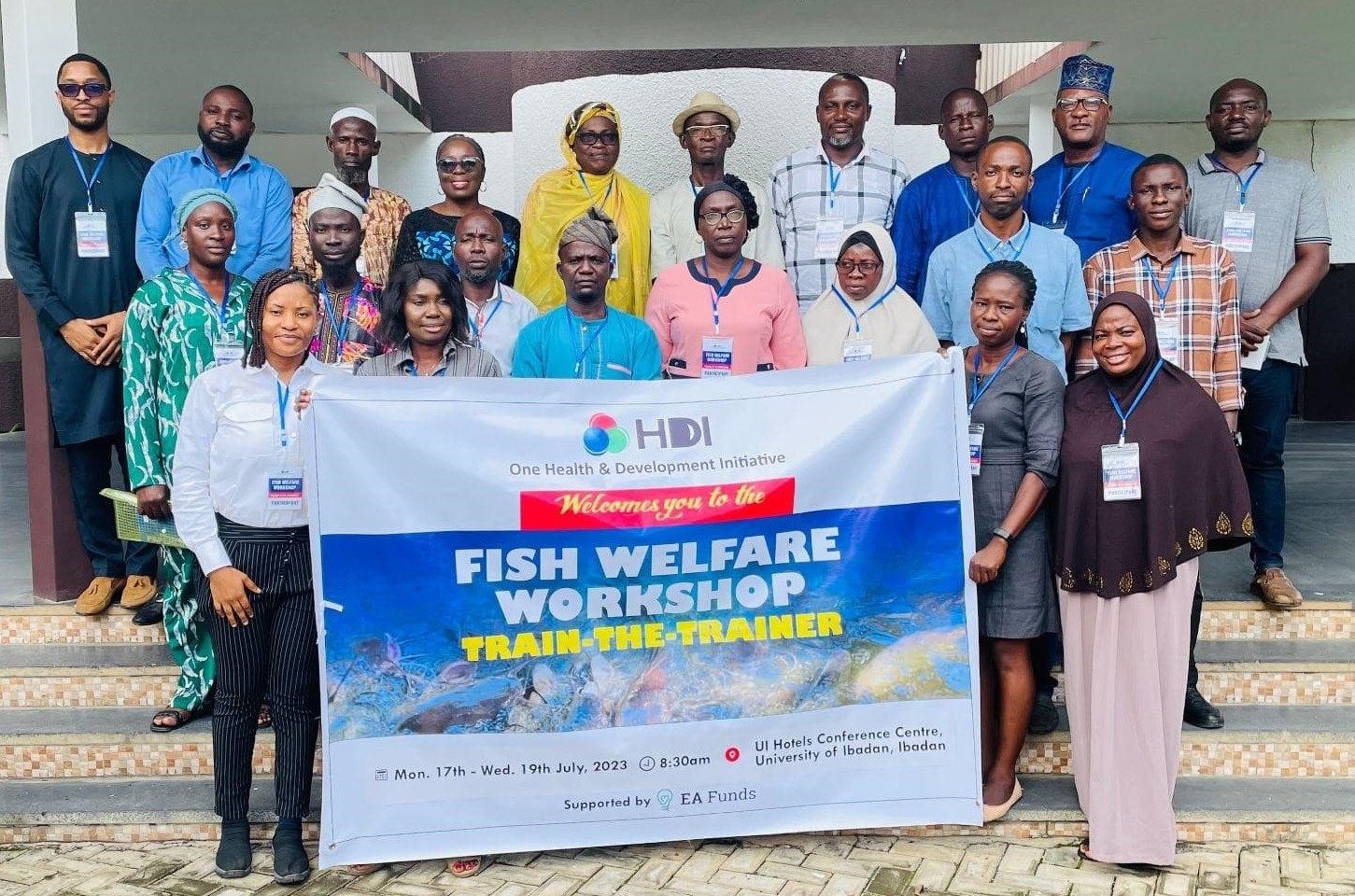
Our concern is always about this!
Conversations on Animal welfare especially on Fish welfare have not been the norm in many African Nations. Animal welfare is an important element in the lives of animals, just as it is for us. Animal welfare in itself is tied to animals being able to enjoy conditions that allow full growth and development, humane handling, free from pain and discomfort. Observance of animals’ welfare therefore, has to be in conformity within a given set of conditions that have been tested, and proven to promote the wellbeing of animals that are reared away from their natural habitat.
For Fish welfare, a lot needs to be considered; some of the key considerations include the species in question, rearing environment, nutrition, water quality, handling, and slaughter. A Fish handler/breeder should be knowledgeable about raising fish with the least amount of stress, and ensure a maximum amount of positive experiences. All systems and structures should be adopted to cater for their welfare.
Different fish species require different conditions for them to be able to reach full level of development in respect to the category they fall into. This is also true for fish that is usually bred, and harvested by humans. Aquaculture, the common practice in which fish is alienated from their natural habitat, works within the markings of aquatic life welfare standards. This is common in regions such as Europe where fish farming is given keen attention.
Like many African countries, Nigeria has come to the realization that fish welfare is an important aspect in aquaculture practices. This welfare practice is essential to lessening stressors of any kind on fish reared on farms and to enhance good handling, health and productivity.
Our organisation has put a lot of effort to improve the welfare of animals, fish inclusive. We stand in contentment of raising awareness about best fish welfare practices. We have engaged a number of stakeholders including fish farmers, fish vendors, large scale fish buyers, fish farming regulators, government agencies, and fish welfare trainers.
We have had numerous engagements with all these key stakeholders on the matter of improving fish health, welfare, and standards on fish farms in Nigeria. In April, we held the “Aquaculture fish welfare training” in Ogun State where fish farmers, policymakers and other stakeholders were engaged. Pertinent issues such as water quality, feeding, handling and slaughter (among others salient issues) were shared and discussed with the participants. A mark of understanding the tabled issues was portrayed with the active involvement of our participants within, and outside the confines of their discussion groups on such fish welfare issues.
From the 17th to the 22nd of July 2023, we engaged another cohort of key players in the fish farming sector in Ogun and Oyo States. This time, it was in the “Fish Welfare Workshop: Train-the-trainer.” We engaged a total of 40 fish stakeholders who would be trained and in future serve in the role of training other stakeholders. Each state was represented by 20 stakeholders. Participants were trained by fellow fish farmers who had completed the previous training carried out in April.
The main aim of this training workshop was to provide a basis for fish stakeholders to fully understand key fish health, welfare, and standards issues, so that they could incorporate into their daily management practice and also able to train other fish stakeholders. Distribution of representatives from the two states enabled us to have a wider influence, as these trainers of trainers will go and disseminate information on key fish farming best practices in their respective polities.
During the train-the-trainer workshop, trainees were introduced to a number of fish welfare modules such as an Overview of Aquaculture in Nigeria, introduction to Animal welfare and introduction to Fish welfare. They were also trained on the relationships between growing systems, water quality, fish nutrition and welfare of fish. Issues such as fish welfare during handling, slaughter, and fish health were also shared with the participants, among others
At the end of the training sessions, we achieved an improvement on our template of fish welfare training that can be used by other organisations who work in the animal welfare space in different regions of Nigeria, and Africa. As a part of our contribution to the welfare of farmed fish and in creating awareness on these crucial issues, we reinforce our belief that Animal/fish welfare has a strong link to One Health and broadly the Sustainable Development Goals.





